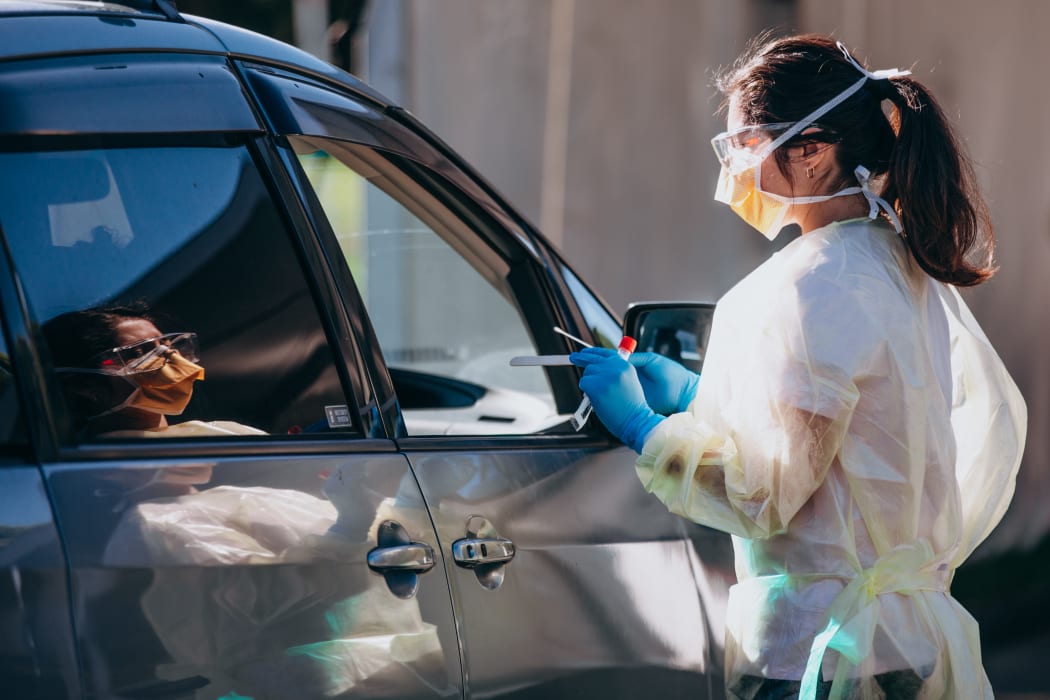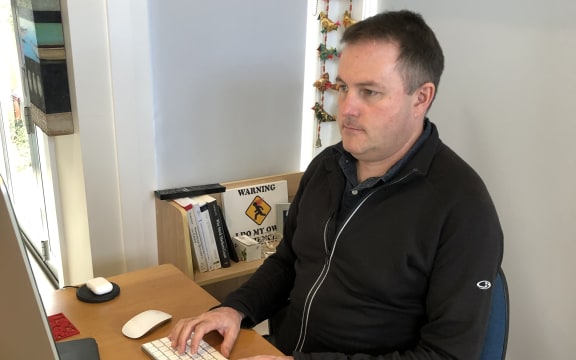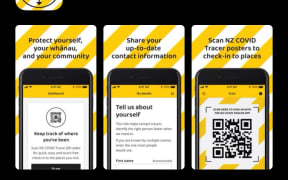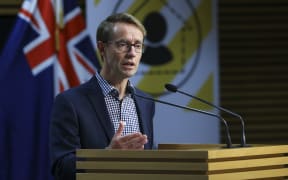Covid-19 testing times and contact tracing in Auckland have failed to meet the "gold standard" set by the Ministry of Health, according to data released to RNZ.

Ministry of Health data showed Auckland missed three key performance measures between 13 April and 29 May (File image). Photo: RNZ /Dom Thomas
Figures showing whether all 12 public health units (PHU) are hitting contact tracing targets cannot be released for privacy reasons, the Ministry of Health says.
The ministry data showed Auckland missed three key performance measures between 13 April and 29 May.
Three performance targets were introduced as a result of the Verrall report into contact tracing are:
- That 80 percent of people with Covid-19 symptoms get tested within 48 hours
- That 80 percent of test results are received within 24 hours, and in the event of positive cases;
- That 80 percent of close contacts are traced within 48 hours
The latest national results showed two of the three targets were not met.
Of the 144 cases and 360 close contacts included in the data, 71 percent were tested within 48 hours, 79 percent received test results within a day, and 83 percent of close contacts were traced within 48 hours.
A breakdown of how each region and public health unit performed against these targets was collated by the ministry for the first time - following a request by RNZ - but not all of the results were released.
The contact tracing performance of only seven of the 12 public health units could be released, because the small number of cases created privacy concerns, the ministry said.
Of the seven that did have results published, all except Auckland Regional Public Health, were able to trace 80 percent of close contacts within 48 hours.
Mid Central, Hawke's Bay, Wellington and Southern public health units achieved 100 percent within 48 hours, Canterbury 94 percent, Bay of Plenty 86 percent, and Auckland 79 percent.
Taranaki was the only PHU that had no contacts to trace in this time frame, but the performance of the remaining four - Marlborough, Gisborne, Northland and Waikato - could not be supplied because they had fewer than five cases, the ministry said.
"As in other small data sets of less than 5, there is a risk that people may be identified, including by knowledge in a community itself, which is why we are not reporting this data set.
"After our experience of cluster reporting earlier in the Covid-19 response where people were able to be identified, and experienced harassment or unwanted attention from the public or media, we re-looked at our policy and as a result we have made sure that clusters and other small groups are appropriately anonymised," a Health Ministry spokesperson said.
The results for the time taken from symptom onset to getting tested were provided only for two regions: with both, Auckland and Canterbury, failing to meet the 80 percent target.
In Auckland, 79 percent of those with Covid-19 symptoms got tested within two days, and in Canterbury, only 64 percent of those with symptoms got tested within 48 hours, compared to the national figure of 71 percent.
The ministry said this was because people with mild symptoms often delayed getting tested.
"This emphasises the importance of people who have symptoms seeking advice quickly about getting a test," a spokesperson said.
"In Canterbury, the cases that fall outside of the two-day target were complex cases.
"The cases were already in isolation as they were considered a close contact and symptom onset was difficult to determine in some cases for the reasons noted above."
Auckland was the only region to have also missed hitting the target of getting 80 percent of test results back within a day, achieving 74 percent.
Auckland University professor Shaun Hendy, who has been modelling Covid-19, said it was "concerning" the Auckland region had missed all three performance targets.

Auckland University professor Shaun Hendy. Photo: Supplied
"Auckland is a high risk region, because we have a lot of travel. If we are going to be relaxing border restrictions that puts Auckland at greater risk than other parts of the country," Hendy said.
"We do need to be sure that Auckland is operating at that gold standard."
Auckland Regional Public Health Unit director Dr William Rainger said he was "very pleased" to have achieved 79 percent in tracing close contacts within two days, noting it was "just one point shy" of the 80 percent target.
"Auckland Regional Public Health Service has had a large number of complex cases and by far the highest volume of contacts to follow up nationally."
The unit continued planning and preparation in recent weeks to ensure it was ready to respond to future outbreaks, Dr Rainger said.
Hendy understood why the results for units with fewer than five cases were withheld by the ministry, but said it raised questions about their efficacy in a larger outbreak.
"For some PHUs, particularly in parts of the country where we didn't see significant outbreaks, the numbers are actually very small ... you don't have the statistics to really evaluate if those PHUs are meeting those targets.
"So, in some cases we haven't seen PHUs been put through their paces."
Hendy said he would like to see more stress testing of these smaller public health units to see how they could cope in a larger outbreak, and the results of those tests to be made public.





